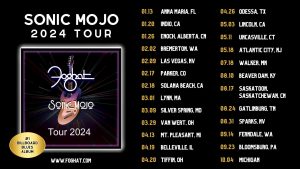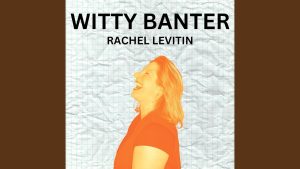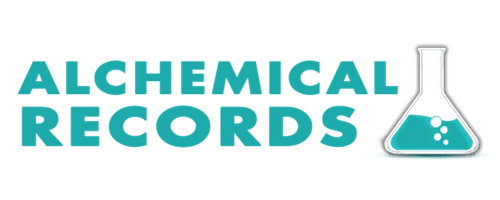
By Cynthia Gross
D.C. became home for jazz pianist Chris Grasso by happy accident when he was unable to find a job after attending Peabody and graduating from the University of Michigan in Ann Arbor. Grasso serves as music director for Sharón Clark, D.C.’s most in-demand jazz singer, and they have been featured in the New York Times, Wall Street Journal, and more. Learn more about Grasso’s journey with contributing writer Cynthia Gross, including why he believes expectations are the enemy of creativity and what to expect at his show this weekend at Mr. Henry’s.
How long have you been part of the D.C. music scene? What gives you staying power?
A: About 20 years, which is hard to believe. To the extent that I have “staying power,” I guess it’s just that I love to play music, and in order to do it as much as I’d like, I have to try to make some things happen myself. There are great players who are so in demand that they can just wait for the calls to come in. I certainly get calls, but I also have to hustle in order to keep working.
Why have you decided to plant your roots in D.C.?
A: D.C. was basically a happy accident. I went to Peabody for my freshman year of college. I didn’t stay (I ended up transferring to the University of Michigan in Ann Arbor). I planned to move back to Baltimore after college, but didn’t have a job, so I crashed on my brother’s couch on Capitol Hill for a while. I waited tables at a place called Jenkins Hill while I was job hunting (I was the worst waiter in history). Then I found a job as an editorial assistant for a publication called Education Daily, which was based in Northern Virginia, so I decided to stay in D.C.
 Where did you get your start in music?
Where did you get your start in music?
A: The first steady gig I had was at a place called the Stage Door at 14th and P Street NW. I lived nearby, and when I walked past, I saw they had a big grand piano in the window. I walked in and discovered it was a Bösendorfer, which is a crazy expensive piano to have in a small pub-style restaurant. Turns out the piano belonged to a friend of the owner who couldn’t make the payments, so he took it over. I convinced them to give me a gig, and I hired a bass player who had been recommended to me named Donnie West. Donnie and I just hit it off immediately. He changed my life – no exaggeration. I was heartbroken when he passed away a couple of years back. He was truly one of the great people on the planet. Another of my earliest regular gigs was playing at Mr. Henry’s with one of my oldest friends, trumpeter Kevin Cordt. We went to Michigan together, though we both played classical music then, not jazz.
Who are your biggest influences and why?
A: Well, Donnie was a big one. He let me experience what it felt like to swing. He just had this big, beautiful beat. But he also showed me what it felt like to connect with another musician in a way that was personal, and spontaneous, and built on a foundation of mutual trust and kindness. I learned later that feeling isn’t always there. But ideally, it should be.
My friend Timo Elliston, a wonderful pianist and composer who is based in New York now, helped me a lot, especially early on. He has a remarkable way of analyzing musical challenges, and he really targeted some fundamental issues in my playing and helped me improve.
I have to say working with bassist Tommy Cecil has been a big influence. His approach to the material has so much integrity – he really respects the songs and the composers. He also has a great ability to play phrases that speak directly like language – he never plays three notes when one will do, and he uses space, time and shape so effectively.
 What’s something you believed earlier in your career but think about differently now?
What’s something you believed earlier in your career but think about differently now?
A: That’s a tough one. I think my whole development, such as it is, is just a series of periods in which I think I have something figured out, then I realize I don’t, or at least not completely, and have to try again. Actually, though, there is one thing. I thought that the more I could control, and the more I planned, the better things would turnout. Then I came to realize that expectations are really the enemy of creativity. Now, I’m happiest musically when there are no plans and no expectations, and I’m not trying to control anything.
After college, you took an 8-year break from music and pursued a career as a journalist and lawyer. Why did you pursue that path and then later return to music?
A: I graduated college with a degree in classical piano performance and a minor in English. I was a good pianist, but I was never going to be able to support myself playing classical music, and I didn’t want to teach. I’d always been interested in writing, and in government, politics and current events, so I wrangled my sad little English minor into a job as an editorial assistant. After a year or so, a job as a reporter became available, and I got to cover Congress and the Supreme Court. That got me interested in law, so I decided to go to law school.
The year I graduated, my partner was diagnosed with AIDS. I came back to D.C. to work at a law firm and take care of him. He actually got me into trying to play jazz. He found an old Real Book that I had in my music collection (it had been left behind by the band that played my brother’s wedding). He asked me to explain what the chord symbols meant (he played piano, too). We just started goofing around reading tunes out of the Real Book, then we invited our friend Kevin Cordt over to play trumpet. It was just a little hobby that became more and more important to me. Then when he died, I asked my firm if I could start working less so I’d have time to pursue music, and they agreed (which was pretty amazing of them). Over the course of about five years, I slowly left law and started to do music full-time.
 You’ve worked with a number of legendary artists. What’s your favorite moment?
You’ve worked with a number of legendary artists. What’s your favorite moment?
A: I’ve been really fortunate to have people in my life who have put me into some great situations. My wonderful musical partner and friend Sharón Clark had known bassist Keter Betts for years, and he came to see us play at the Henley Park Hotel, and sat in with the band. Keter was Ella Fitzgerald’s bassist for 25 years. A couple of weeks later, he called me for a gig, which turned out to be a concert simulcast on the radio. Terrifying. But an amazing experience. Thanks to Robert Redd for not being available for that one!
Come to think of it, the fact that Robert is so in demand also got me into another great situation. Robert was booked with John Pizzarelli, and his brother Chuck Redd had a concert with Bucky Pizzarelli on the same night, so Chuck called me to play with Bucky and Nicki Parrott. That was incredible. Also, I have to say a huge thanks to Willard Jenkins, who invited my trio to be sort of the house band for the closing night of the D.C. Jazz Festival at the Kennedy Center, and we backed up Cassandra Wilson, Kenny Garrett and Joshua Redman. That was kind of insane and wonderful.
Can you share details on your Second Saturdays Vocal Jazz Series at Mr. Henry’s?
A: Yes! So our re-opening night in July featured Alison Crockett, and it was amazing. We sold out a week in advance. Alison is really the personification of being in the moment on. There’s not a chart or a setlist in sight, but she knows exactly how to call tunes and make things happen in the most natural way.
Our next show is Saturday, August 14, and we’ll actually feature two great vocalists: Bonnie Harris and Julian Hipkins. I’ll be out of town, so Robert Redd will be on piano, and James King will be on bass (can’t get much better than that for a rhythm section). Bonnie and Julian are two of my favorite singers because they’re completely themselves, they have a really strong connection to the material, and they know how to swing. It should be a great night. But get tickets soon before they’re gone! Purchase tickets here.

Cynthia Gross is a freelance writer and award-winning spiritual pop artist based in Maryland. With more than a decade of experience as an executive ghostwriter, she understands the power of each individual’s voice to create positive, meaningful change.

Recent Articles March 21st. A day that I will always think of amazing album releases. DC-based musician, producer, and singer-songwriter, Rachel Levitin, released Witty Banter

Alchemical Records is a Washington, D.C. based music publication. We cover the Washington, D.C., Baltimore and Richmond, VA metro area music scenes, including band interviews, articles about your favorite musicians, new music and concert dates.